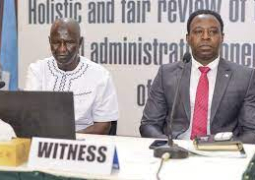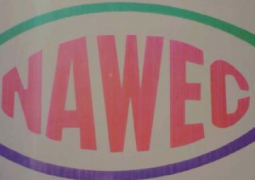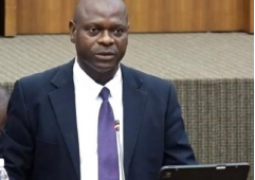
Bai Mbye Sallah, the UDP regional vice chair, who made this call through the Ministry of Agriculture and the Gambia Food Processing and Marketing Corporation, said farmers in NBR face challenges receiving their money from government through QMoney.
Speaking in an interview with The Point newspaper recently, Mr Sallah said that in the Gambia “95% of the population are farmers and most of those farmers are groundnuts cultivators across the country and “in this year's trade season farmers are facing challenges to have access to their money through QMoney”.
"If you take your groundnuts at the seccos, they would ask whether you have QCell, and if you don't have, they would give you a QCell line and register it with the QMoney system so they can pay you through that system,” he explained. “That may seem good, but it is a challenge for the farmers because firstly you can access only Ten Thousand Dalasis (D10,000) and for your remaining money you must go to Kombo or Farafenni because we in Nuimi do not have AGIB Bank in Barra. This is very challenging for the farmers living in places like Madina Shering Mass and beyond."
According to Sallah, the Gambia government through the Ministry of Agriculture should be very calculative in utilising such services to avoid introducing something that would cause problems for the farmers. “Because this payment system by QMoney is very challenging and it does not help the farmers in the North Bank Region especially those at the remote villages,” he claimed.
Stating that he was taken aback to realise the purchase and sale of produce of the groundnut trade season was given to a businessman, the UDP regional vice chair said the contracted businessman decided to use QMoney service to pay farmers, “which has proven to be very difficult for the farmers to collect their payments, and would frustrate them to continue to cultivate groundnuts.”
Sallah appeals to the Gambia government to discontinue the QMoney payment service to farmers across the country for the well-being of the groundnut cultivators and the betterment of the country.
He said the Gambia farmers union is working tirelessly in letting the relevant stakeholders remedy the situation. “But it seems the government do not have interest in stopping paying farmers through QMoney,” he added.
Alagie Ceesay, vice president of The Gambia Farmers’ Union (GFU), said the major problems of the system include inadequate sensitisation about the QMoney digital payment platform, insufficient payout agents across the country, and limited availability of cash at the trading centres.
Musa Sowe of the National Coordinating Organization of Farmers in The Gambia (NACOFAG) and Abdoulie S. Khan of the Federation of Agricultural Cooperative Societies (FACs) subscribed to the challenges raised by the GFU while encouraging farmers to cooperate with the Government in finding lasting solutions.
Responding to farmers’ queries during a meeting held at the Agriculture Ministry’s offices in Banjul recently, the Agriculture Minister, Dr Demba Sabally, told QGroup to increase payment services across the 95 Seccos nationwide or 39 Districts to ease monetary transactions for farmers.
Minister Sabally highlighted the importance of farmers to the Gambian economy and agriculture as a Government priority. In the same vein, Finance Minister Seedy Keita assured farmers of the Government’s steadfastness in providing resources to their sectors.
Muhammed Jah, Chairman and CEO of QGroup, which partners with the National Food Security, Processing and Marketing Corporation in the groundnut trade, thanked government for the timely response to farmers’ concerns as evident in the meeting with Ministers, Permanent Secretaries, the Deputy Government Spokesperson, and senior officials.
Mr Jah promised to intensify the QMoney sensitisation campaign across the country, deploy more agents and synchronise cash payments to the Seccos. To accomplish this, the QGroup has deployed 500 people to train stakeholders across the country, purchased 8 vehicles to expedite the movement of workers and ensure sufficient and timely delivery of cash.
Nevertheless, the 2024 Groundnut Trade Season, which began in earnest on 2 December 2024, is scheduled to end on 2 March 2025 across the country. This year’s market price is pegged at Thirty-Eight Thousand Dalasis (D38,000.00) per tonne, which is significantly higher than countries within our subregion.




